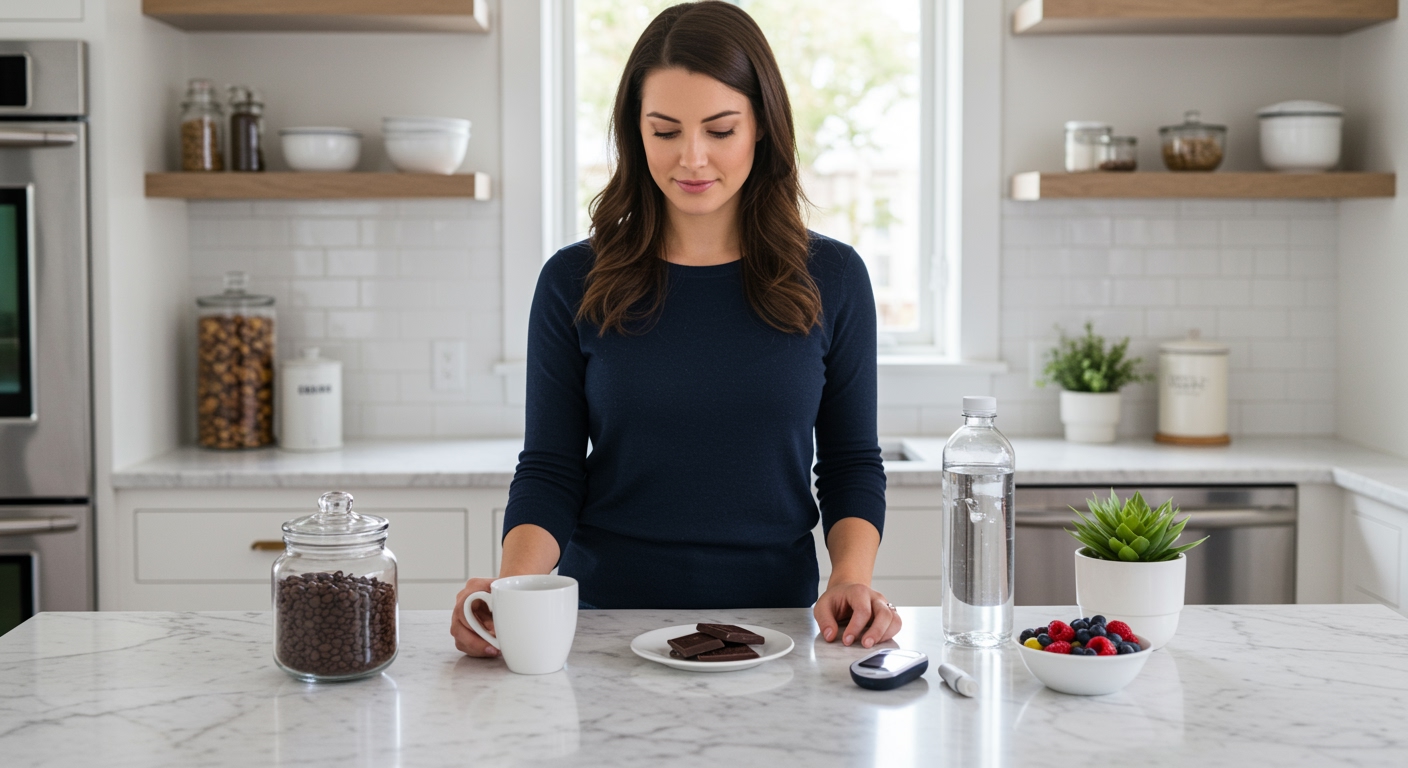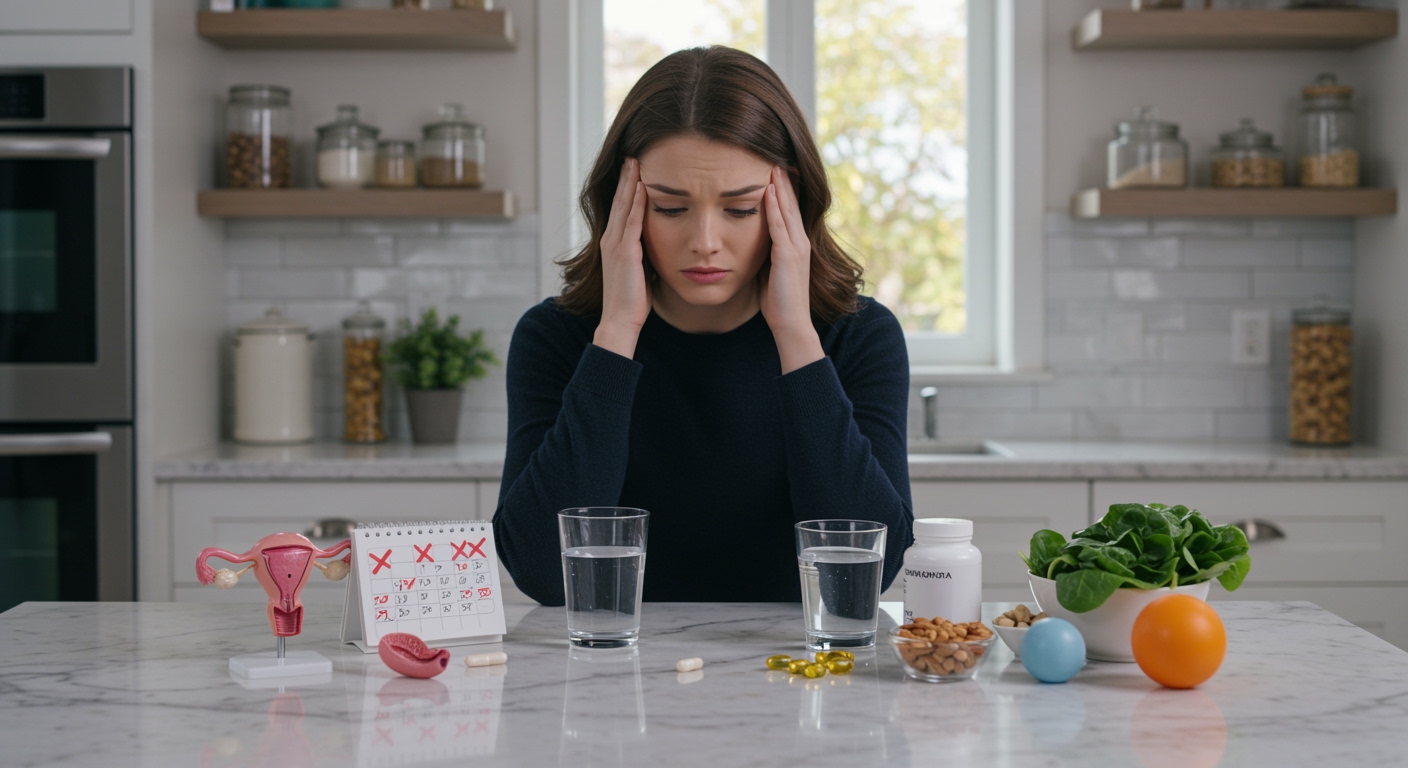✪ Key Takeaway: Recent research suggests moderate caffeine intake may actually reduce PCOS risk rather than worsen symptoms.
Introduction
Your morning coffee ritual might be causing you more worry than joy if you have PCOS.
Many women with PCOS wonder if their beloved caffeine habit is secretly sabotaging their hormonal balance and making their symptoms worse.
Hi, I am Abdur, your nutrition coach and today I am going to explain the complex relationship between caffeine consumption and PCOS hormonal health.
What Does Recent Research Say About Caffeine and PCOS?
A groundbreaking 2024 study published in the journal Nutrients completely challenges what we thought we knew about caffeine and PCOS.
Researchers followed over 116,000 women for more than 20 years and discovered something surprising.
Women who drank two to three cups of coffee daily had a 12% lower risk of developing PCOS compared to those who avoided caffeine entirely.
The protective effect appeared strongest with caffeinated coffee rather than decaffeinated versions.
This finding contradicts the common belief that caffeine automatically worsens PCOS symptoms.
However, the study focused on PCOS prevention rather than symptom management in women who already have the condition.
✪ Fact: Coffee contains over 1,000 bioactive compounds beyond caffeine that may influence hormone metabolism.
How Does Caffeine Actually Affect Your Hormones?
Caffeine influences your body through multiple pathways that directly impact hormonal balance.
When you consume caffeine, it blocks adenosine receptors in your brain, which keeps you alert and awake.
This process also triggers the release of stress hormones like cortisol and adrenaline.
Elevated cortisol levels can worsen insulin resistance, which is already a major problem for most women with PCOS.
Caffeine also affects your sleep quality when consumed later in the day.
Poor sleep disrupts leptin and ghrelin, the hormones that control hunger and satiety.
Additionally, caffeine can increase anxiety levels in sensitive individuals, which further elevates stress hormones.
✪ Pro Tip: Monitor your cortisol response by tracking how you feel 30-60 minutes after drinking coffee.
Does Caffeine Make Insulin Resistance Worse?
The relationship between caffeine and insulin sensitivity is more complex than most people realize.
Short-term studies show that caffeine can temporarily reduce insulin sensitivity by 15-20%.
This happens because caffeine increases the release of fatty acids into your bloodstream, which interferes with glucose uptake by your cells.
However, long-term coffee consumption appears to have the opposite effect.
Regular coffee drinkers show improved insulin sensitivity and lower rates of type 2 diabetes over time.
The key difference lies in your body’s adaptation response to regular caffeine intake.
Coffee also contains chlorogenic acid, which slows glucose absorption and may improve insulin function.
✪ Note: The timing of caffeine intake matters more than the amount for insulin sensitivity.
What About Individual Differences in Caffeine Response?
Your genetic makeup plays a huge role in how your body processes and responds to caffeine.
The CYP1A2 gene determines how quickly your liver breaks down caffeine.
Fast metabolizers can handle 400mg of caffeine daily without negative effects, while slow metabolizers may experience problems with just 100mg.
Women with PCOS often have heightened stress responses, making them more sensitive to caffeine’s effects.
Your current stress levels, sleep quality, and overall health status also influence how caffeine affects your hormones.
Some women notice that caffeine triggers anxiety and mood swings, while others feel more focused and energized.
The key is paying attention to your individual response rather than following generic recommendations.
✪ Pro Tip: Keep a symptom diary to track how different amounts of caffeine affect your PCOS symptoms.
How Should You Approach Caffeine With PCOS?
The smartest approach to caffeine with PCOS involves personalized experimentation rather than complete elimination.
Start by limiting caffeine to 200mg daily, which equals about two cups of coffee.
Consume all caffeine before 2 PM to avoid sleep disruption.
Choose high-quality coffee sources that are low in mold and pesticides.
Avoid adding sugar or artificial sweeteners that can worsen insulin resistance.
Monitor your stress levels, sleep quality, and PCOS symptoms for two weeks.
If you notice improvements, you can gradually increase your intake while continuing to track your response.
✪ Note: Green tea provides caffeine with L-theanine, which may reduce anxiety and stress responses.
The Bottom Line
The evidence suggests that moderate caffeine consumption may not worsen PCOS symptoms and could even provide some protective benefits.
Your individual response to caffeine matters more than following blanket recommendations.
I would love to hear about your experience with caffeine and PCOS in the comments below, so please share your thoughts and questions.
References
At NutritionCrown, we use quality and credible sources to ensure our content is accurate and trustworthy. Below are the sources referenced in creating this article:
- PMC: Drinking coffee daily linked to decreased PCOS risk
- News Medical: Drinking coffee daily linked to decreased PCOS risk
- PCOS Fertility Nutrition: How does caffeine affect PCOS
- The PCOS Dietitian: Caffeine and PCOS





